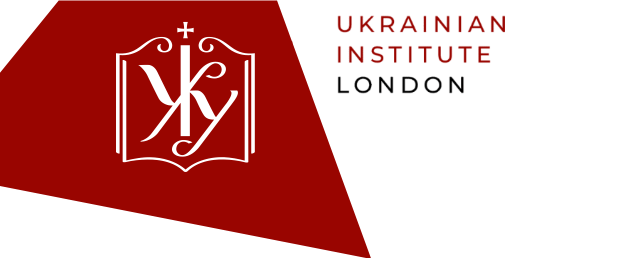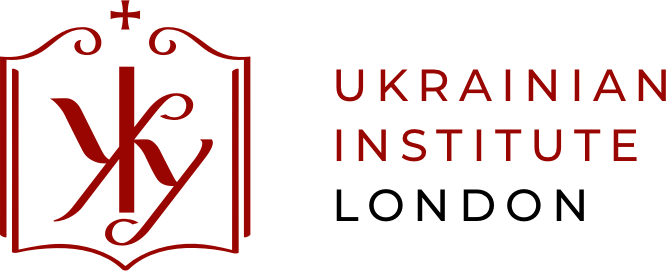A discussion with Yevhen Hlibovytsky on reforms, institutions and the upcoming presidential elections.
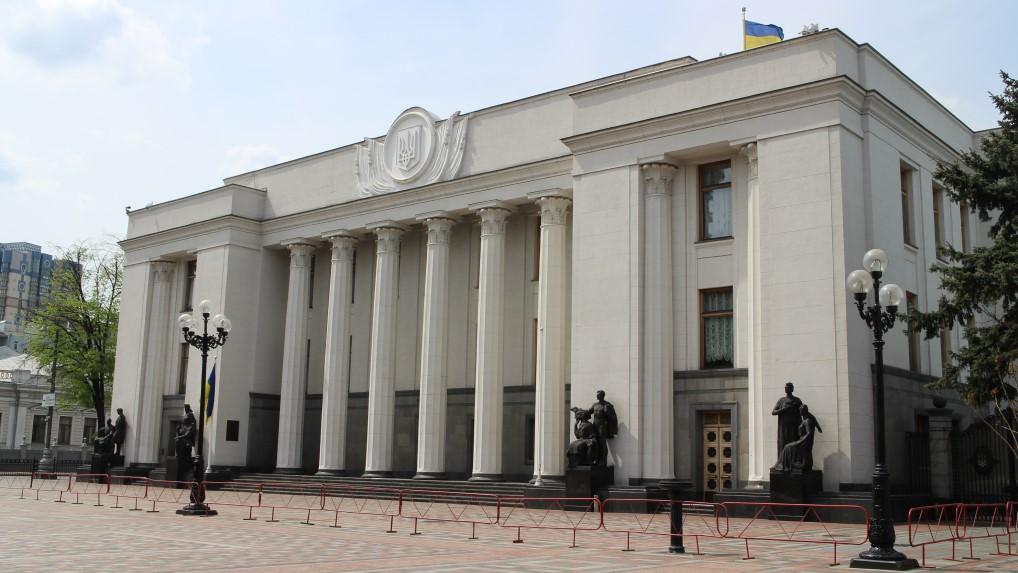
AUTHOR
Ukrainian Institute London
The Ukrainian Institute London hosted a stimulating discussion with expert, Yevhen Hlibovytsky, member of Nestor Group.
Overall, Hlibovytsky’s message was one of optimism: “Ukrainian society has very firmly made its choice to move towards Europe, and none of the possible outcomes of the presidential elections will change this.” However, he noted that “weak institutions and lack of accountability may well produce a situation where political winners could try to go against the choice of the people, this way contributing to greater tension between the voters and the elected officers who are supposed to represent the voters.”
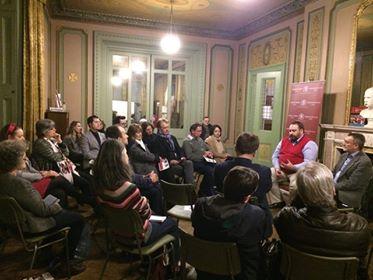
He noted that the architecture of reforms in Ukraine has changed since Ukraine proclaimed independence. “Early on, reforms were designed in the West and then implemented by governments in Ukraine. But now, reforms are designed locally in Ukraine, with some Western expertise to support, and then implemented with help (and pressure) from the West. International support for reforms in Ukraine means that a rollback of reforms would cause problems for bilateral and multilateral relations. Ukrainian security in many aspects depends on Western sanctions against Russia, and Ukraine can’t afford to damage these relations.”
Photo: Yevhen Hlibovytsky addresses the audience at Ukrainian Institute London.
It is important that reforms stay in place and are not compromised, whether or not there is a change at the top following the elections.
Hlibovytsky commented that the main risk is not the decreasing speed of reforms, but sustainability. “It is important that reforms stay in place and are not compromised, whether or not there is a change at the top following the elections. Should the reforms survive the next political cycles, that would eventually allow for the second, third and the following generations of reforms to build on them.”
He also highlighted that an important question in terms of protecting reforms is ensuring that they are communicated properly to people. “For example, judicial reform – the average Ukrainian will be able to tell you that the courts are corrupt and don’t function properly, but if you ask them what the reforms have done to change this, they will have no idea. Part of the sustainability of reforms is making sure that people know what they entail, and there has been limited success on this front.”
Hlibovytsky’s round-up of the presidential candidates
So who is likely to win the presidential elections? Hlibovytsky didn’t fail to address the question on everyone’s mind, and he gave an entertaining rundown of his perspective on the main candidates.
“Poroshenko has been emphasising his achievements, promising to do even better. Tymoshenko takes a different approach; she looks very empathetic. She comes to you, she looks you in the eye, she takes your hand, and she says ‘I feel for you’. And she does it so well that you start wondering whether maybe she does.
It’s an interesting question whether people see Zelensky as the character in the TV series or as the real person behind the character?
“Then there’s Zelensky, who is not part of the ‘old guard’ (although he is supported by Kolomoysky), TV star who played the character of the president of Ukraine in a popular TV series – and this was a very unsophisticated understanding of the role of the president. It’s an interesting question whether people see Zelensky as the character in the TV series or as the real person behind the character?
“Poroshenko’s position gains momentum thanks to the importance of the president’s role as Commander-in-Chief. People have many complaints about Poroshenko: he is not liked because he promises things he can’t deliver. He’s not liked because he’s rich, and he’s suspected of corruption. He’s not liked because he’s doing things the old way. But Ukraine is a country at war – and when it comes to the main presidential responsibilities in security and foreign policy, Poroshenko is seen by most as a stronger candidate than Tymoshenko and Zelensky. In this sense the Kerch strait incident and martial law have worked in Poroshenko’s favour.”
Ukraine’s institutions
Hilbovytsky emphasised the important role of institutions in Ukraine – the president is not the only driving force in determining Ukraine’s future.
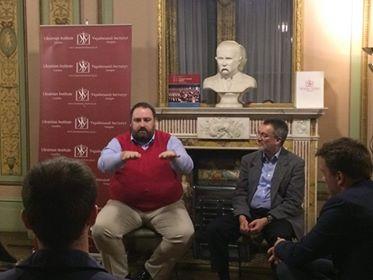
He noted the significance of increased support for local governments in Ukraine. “Institutional trust for central government is extremely low – but support for local self-government is higher and has been increasing. Decentralisation reforms are gaining momentum. I expect that after local elections in 2020, for the first time, we will have locally elected authorities, for instance mayors, who will be able to stand up to central authorities on certain issues – and win. Which has hardly been the case up until now.”
Photo: Yevhen Hlibovytsky addresses the audience at Ukrainian Institute London.
Institutional trust in the Church is highest of all – with around 70% trust from society (as opposed to only about 10% trust in central government and 35% in local government). “This also makes the support of European integration by the major churches in Ukraine a crucial element of the whole architecture of this movement towards Europe.”
